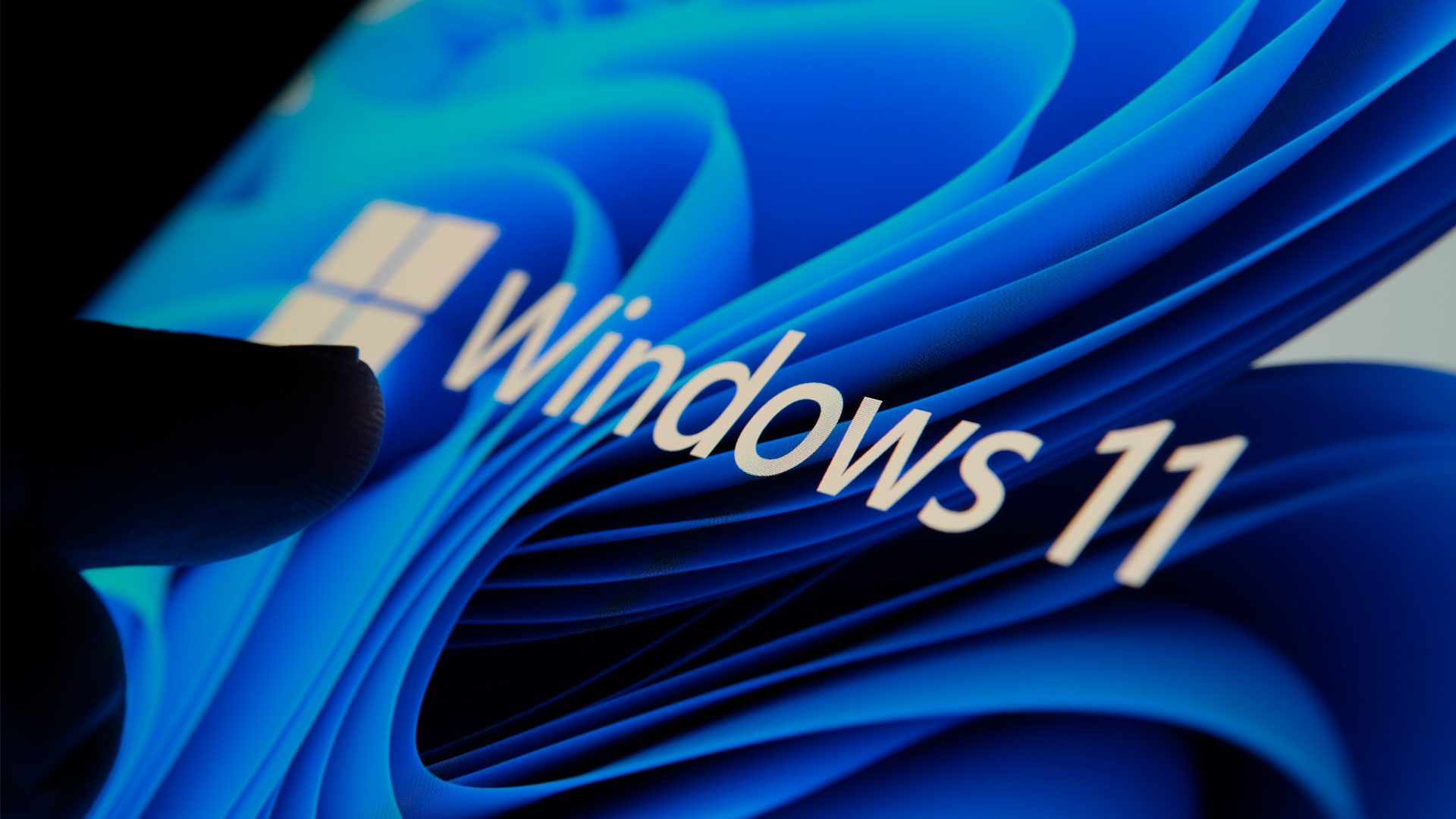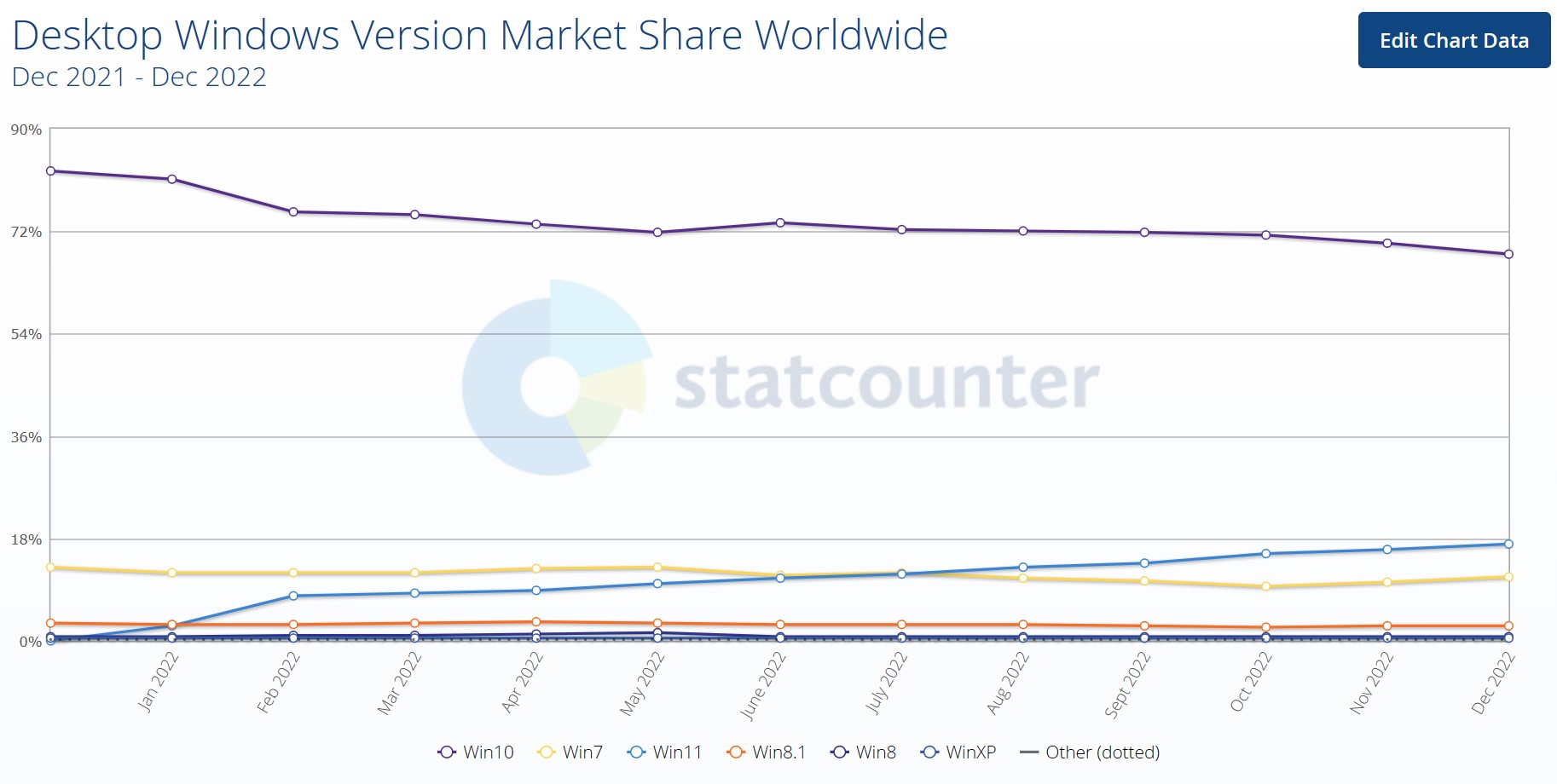You still haven't upgraded to Windows 11 and it's probably Microsoft's fault
Opinion: A lot of people still haven't made the Windows 11 switch. Can Microsoft make them?

Sign up for breaking news, reviews, opinion, top tech deals, and more.
You are now subscribed
Your newsletter sign-up was successful
A couple of years ago, my wife got a lovely new Acer all-in-one PC running Windows 10. Just a few months later, Microsoft shipped Windows 11. Thus far, my wife has doggedly refused to upgrade.
Her system gets the entreaties every few weeks. She'll open her system and instead of the Windows 10 desktop, she'll see what looks like a step in a Windows installation progress. "Does she want to upgrade to Windows 11," it asks. "It's so much prettier, easier, more secure, blah, blah, blah." My wife's eyes glaze over and she turns to me. "Should I?" she asks.
Now I want to be honest here. I know that she should upgrade to Windows 11, because it is a better operating system than Windows 10. But it's also different and in my wife's computing world, different = bad.
Even though I migrated her to the Microsoft Edge browser a year ago (and she likes it), I worry that the center-focused and core-elements-redesign of Windows 11 might be a step too far.
Her hesitancy to go through that last step is not uncommon. According to StatCounter, as of December 2022, roughly 18% of the global Windows user base was running Windows 11. Windows 10 has 68% and Windows 7 is still holding onto roughly 12%. Yes, that last number is startling though not as insane as the half percent still clutching onto 22-year-old PCs and Windows XP.

We're not like that, me and my wife. I'm running Windows 11 because I love the next big thing and am never put off by different or new. And my wife has up-to-date iPhones, iPads, and this rather new PC. I suspect most people, though, are like my wife in at least one way. "Why change what isn't broken?" they think.
To be fair to those who have pressed pause on upgrading, Microsoft is at least partly to blame. A lot of the best computers sold over the last decade do not automatically support this more secure version of Windows because they do not include Trusted Platform Module 2.0. This hardware-based security technology, which provides support for security features like Windows Hello biometric face ID and BitLocker for data protection, is in most computers that shipped over the last few years but not many before that. As a result, Windows 11 was among the first Windows launches to leave behind a huge chunk of relatively new machines. There is a way around this requirement, but it's not easy or recommended.
Sign up for breaking news, reviews, opinion, top tech deals, and more.
Naturally, after letting people still buy Windows 10 licenses for more than a year since Windows 11 launch, Microsoft is finally drawing a hard line. It announced last week that Windows 10 Home and 10 Pro sales will cease as of January 31, 2023. Of course, Microsoft will happily support its aging OS through 2025.
I realized that despite writing glowingly about Windows 11, I may have done a poor job of convincing users like my wife to upgrade. Maybe I was being too technical. I decided to ask Microsoft how it might approach this conundrum.
On the question of Windows 11
This is the query that I sent out to Microsoft:
"If a consumer walked up to [Microsoft CEO] Satya Nadella and asked that question, what would he say? How would he convince (and not confuse) a consumer that upgrading to Windows 11 is beneficial and will help and protect them in the long run? And, Satya Nadella being a busy man, how would he do it in just a few brief minutes?"
I didn't really expect a direct answer from Nadella and, of course, did not receive one. Instead, I got this regurgitation of previously-shared Microsoft information from Amy Bartlow, Windows Marketing Director, Microsoft:
"An update was made to the Windows 10 product page to ensure customers have the latest information on purchasing options for Windows 10. Customers have until January 31, 2023 to purchase Windows 10 Home and Windows 10 Pro from this site. Designed to make the everyday easier, Microsoft recommends Windows 11 for customers to enjoy the latest advancements in productivity, security, creativity and more. As previously stated, Windows 10 will remain supported until October 14, 2025. "
Bartlow is right, Windows 11 is streamlined enough to "make the every day easier." I like the platform. Well most of it, the slide-in widgets are an annoying abomination. They appear on their own and I highly recommend turning Widgets off. That aside, this is the safest, most robust, and most stable version of Windows I've ever run.
Maybe that's what Nadella would've said to me if we chatted and maybe it's what I should say to my wife. After all, I don't want her running a platform that only has a couple more years of support ahead of it.

A 38-year industry veteran and award-winning journalist, Lance has covered technology since PCs were the size of suitcases and “on line” meant “waiting.” He’s a former Lifewire Editor-in-Chief, Mashable Editor-in-Chief, and, before that, Editor in Chief of PCMag.com and Senior Vice President of Content for Ziff Davis, Inc. He also wrote a popular, weekly tech column for Medium called The Upgrade.
Lance Ulanoff makes frequent appearances on national, international, and local news programs including Live with Kelly and Mark, the Today Show, Good Morning America, CNBC, CNN, and the BBC.